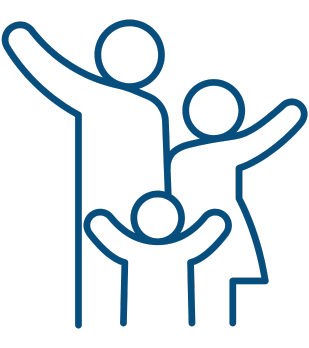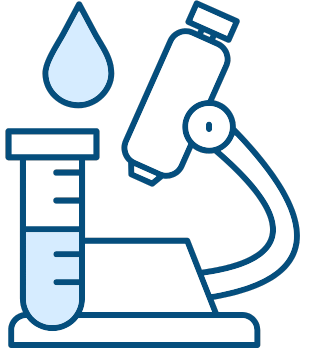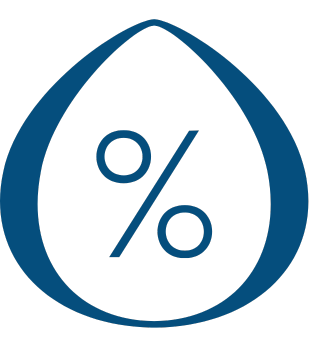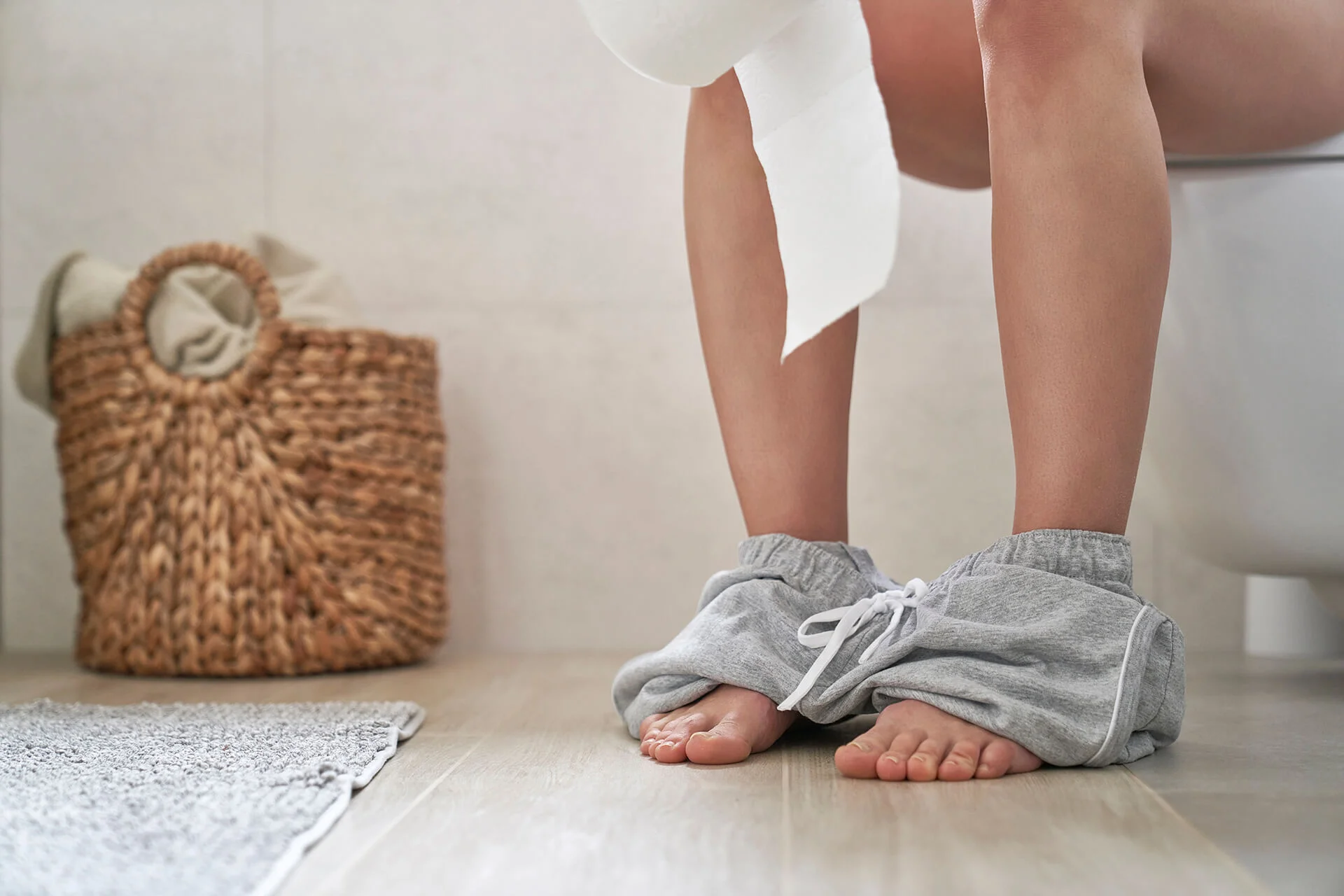Rotavirus infection is one of the world’s most common acute viral intestinal infections, affecting infants and young children particularly severely, but is also dangerous for adults. The virus poses a serious threat to health, especially due to possible dehydration and complications such as electrolyte imbalances and cardiovascular problems. Together with the Drops Clinic family doctors, we have prepared an article for you to discuss not only the symptoms of the Rotavirus, but also the methods of transmission and the treatment of the Rotavirus. We will advise you on when to seek medical attention for a suspected Rotavirus infection and answer the most frequently asked questions about Rotavirus.
Our servicesWhat is Roto virus?
Rotavirus is the leading cause of severe diarrhoea in infants and young children worldwide. This double-stranded RNA virus belongs to the Reoviridae family and most severely affects children up to five years of age, with a higher incidence of

Rotavirus infection often presents with fever, abdominal pain, vomiting and watery diarrhoea, which can cause dehydration. It is dehydration that is the greatest health risk, especially in young children, who need prompt and appropriate treatment. Early recognition of symptoms and prompt medical attention can ease the course of the disease and reduce its duration.
Symptoms of Rotavirus
Rotavirus infection often presents with a range of symptoms that vary in severity. The most common symptoms of rotavirus are:
- Severe watery diarrhoea: this is the most characteristic symptom, lasting between three and eight days. The diarrhoea may be intense, but the duration may vary between cases.
- Vomiting: both children and adults may experience frequent episodes of vomiting, which can lead to a risk of dehydration.
- Fever: the infection is characterised by an elevated temperature, usually above 38°C.
- Abdominal pain: sufferers may experience discomfort or pain in the abdomen, which may last throughout the duration of the illness.
- Dehydration: persistent diarrhoea and vomiting can lead to dehydration, with symptoms such as sunken eyes, dry mouth, reduced urine output and lethargy.
It is particularly important to monitor these symptoms closely and to contact a healthcare professional if your symptoms worsen or do not improve within a few days. Early diagnosis and intervention are particularly important if a child is ill, as this helps to reduce the risk of complications and promotes a faster recovery. Remember that timely treatment can reduce the duration of the disease and timely prevention can prevent the spread of infection among family members and relatives.
How is rotavirus spread?
Rotavirus is a highly contagious virus that is most commonly spread by the faecal-oral route. Here’s how it spreads and what factors contribute to infection:
- Faecal-oral transmission: Rotavirus is most commonly transmitted through contact with infected faeces, when the virus enters the mouth. This can happen directly through hands, food or water containing virus particles, or indirectly through shared surfaces and objects such as handles, toys or mats.
- Droplet transmission: Although less common, rotavirus can also be spread by droplet transmission, e.g. through coughing or sneezing when an infected person releases the virus into the environment.
- Shared contact: The virus can be spread through the sharing of objects such as towels, utensils, toilet lids, cups, bed linen or clothing, especially in playgrounds, kindergartens or schools.
- Personal hygiene: Inadequate handwashing practices or poor sanitation can increase the risk of rotavirus infection.
- Immunocompromised: Infants, children, the elderly and immunodeficient persons are particularly vulnerable to rotavirus infection.

It is important to know that rotavirus is resistant to most disinfectants, so the best way to prevent its spread is to adhere to strict hygiene rules, including frequent and proper handwashing, food-safety practices, cleaning and disinfecting surfaces, and boosting immunity through vaccinations.
Diagnosis of Rotavirus infection
Diagnosis of rotavirus infection is usually based on clinical symptoms, but laboratory tests can be used for more reliable diagnosis. Symptoms such as watery diarrhoea, vomiting, fever and abdominal pain may be indicative of rotavirus infection, but similar symptoms may also be signs of other viral or bacterial infections. To confirm a rotavirus infection, doctors may carry out a stool test to detect the presence of viral antigens. This test is a quick, easy and reliable way to detect rotavirus infection. Early diagnosis allows for appropriate treatment to be started and reduces the risk of complications and the likelihood of spreading the infection.
When should I see a doctor?
You should seek medical attention for possible rotavirus infection when you have the following signs or symptoms: intense watery diarrhoea, vomiting, high body temperature, abdominal pain or discomfort. It is especially important to seek medical attention if symptoms persist for more than a few days, if there are signs of dehydration (e.g. sunken eyes, dry mouth, decreased urine output or lethargy), or if the patient is a child, an elderly person, or an immunodeficient individual. Early treatment by a specialist will help to prevent possible complications, reduce the duration of the disease and reduce the risk of infecting others. Early consultation with a doctor is important for good health and faster recovery.

Ways to treat and prevent Rotavirus
Treatment and prevention of rotavirus involves several important aspects that help to reduce the spread of infection, reduce complications and alleviate the condition of the patient. Here are some of the main ways to treat and prevent rotavirus:
- Symptomatic treatment: although there is no specific medicine to fight rotavirus, symptomatic treatment helps reduce symptoms and improve the patient’s condition. The most important thing is to ensure adequate fluid and electrolyte intake to avoid dehydration. Patients can be given rehydration solutions, such as oral rehydration salts (ORS), to help restore lost fluids and electrolytes. In cases of severe dehydration, intravenous fluid replenishment may be necessary. In addition, antipyretics may be given to reduce fever and spasmolytics to relieve abdominal pain. In the case of nausea or vomiting and diarrhoea, drugs to suppress these problems are prescribed.
- Probiotics: Studies show that probiotics can help reduce the duration and intensity of diarrhoea in rotavirus infection. Probiotics are live micro-organisms which, when taken in the right amounts, can have a positive effect on health by strengthening the gut microflora. However, before taking probiotics, be sure to consult your doctor.
- Strengthening immunity: Strengthening the immune system is essential to protect against rotavirus infection. This includes a healthy diet, regular physical activity and sufficient rest.
- Vaccination: One of the most effective measures to prevent rotavirus infection is vaccination. There are currently two approved types of rotavirus vaccine that are safe and effective in reducing the incidence and complications of the disease. Vaccination is recommended for infants between 6 and 32 weeks of age and is included in the vaccination programmes of many countries. Vaccination not only helps to protect the vaccinee against infection, but also contributes to the general immunity of the population by reducing the chances of spreading rotavirus.
- Hygiene: Good personal hygiene is an important aspect of preventing rotavirus infection. This includes regular and effective hand washing with soap and water, especially before meals, after using the toilet or after contact with sick persons. Food safety rules should also be observed, fruit and vegetables should be washed properly and food should be stored in appropriate conditions. Cleaning and disinfecting common surfaces such as door handles, carpets or toys also helps to reduce the risk of spreading infection, especially in playgrounds, kindergartens or schools.
- Isolation: In the case of rotavirus infection, it is important to isolate the sick person from healthy persons to prevent the spread of infection. The sick person should stay at home until symptoms have stopped or decreased and contact with other family members should be limited. It is also important to use separate towels, utensils and other personal items to avoid transmission of the virus.

Although rotavirus infection does not usually cause serious complications, proper treatment and prevention measures can reduce the duration of the disease, relieve symptoms and protect others from infection. Always consult your doctor for appropriate treatment and prevention methods to ensure a quick and effective recovery.
register for a visitFrequently asked questions
How long does the Rotavirus last?
Rotavirus infection usually occurs in varying degrees of severity and can last for different lengths of time, depending on the immunity and treatment of the individual. A typical rotavirus infection lasts between 3 and 8 days. Symptoms such as vomiting and fever usually disappear within 3-4 days, while diarrhoea can last up to 8 days. However, in some people, especially children, the elderly or those with a weaker immune system, the duration of illness may be longer. It is important to monitor symptoms and seek medical advice.
What to eat when you have Rotavirus?
When you have rotavirus, it is important to eat mild and easily digestible food to avoid causing gastrointestinal strain. Spicy or fatty foods, fried and smoked foods should be avoided as they can cause diarrhoea. The most important thing is to avoid dehydration, so make sure you consume enough fluids such as water, teas, juices, as well as rehydration solutions if needed. “Drops Clinic GPs will be happy to guide you on the optimal choice of products based on the severity of the condition and your personal preferences.
What to eat after contracting Rotavirus?
Once you are over the rotavirus, it is important to gradually return to a normal diet, starting with foods that are easy to digest and avoiding foods that can cause too much irritation to the digestive system. Suitable foods may include cooked rice, pasta, potatoes, roasted or stewed vegetables and protein sources such as meat, fish, poultry and eggs. You can also add fruit and yoghurt. Avoid spicy, fatty, fried or smoked foods for a few days after the illness. A balanced diet and adequate fluid intake will help you to rebuild your body’s strength and improve the function of your digestive system after rotavirus infection.
How to protect yourself against the Rotavirus?
There are a few basic measures to protect yourself from the Rotavirus. Firstly, it is very important to follow the rules of personal hygiene: wash your hands regularly with soap and water, especially before eating, after using the toilet or after coming into contact with sick people. Second, vaccinate your children according to recommended vaccination programmes to ensure long-term protection against infection. Thirdly, try to avoid contact with sick people and practice good home hygiene. It is also important to disinfect common surfaces such as door handles, toilet lids, carpets or toys to reduce the risk of spreading the infection. These prev




